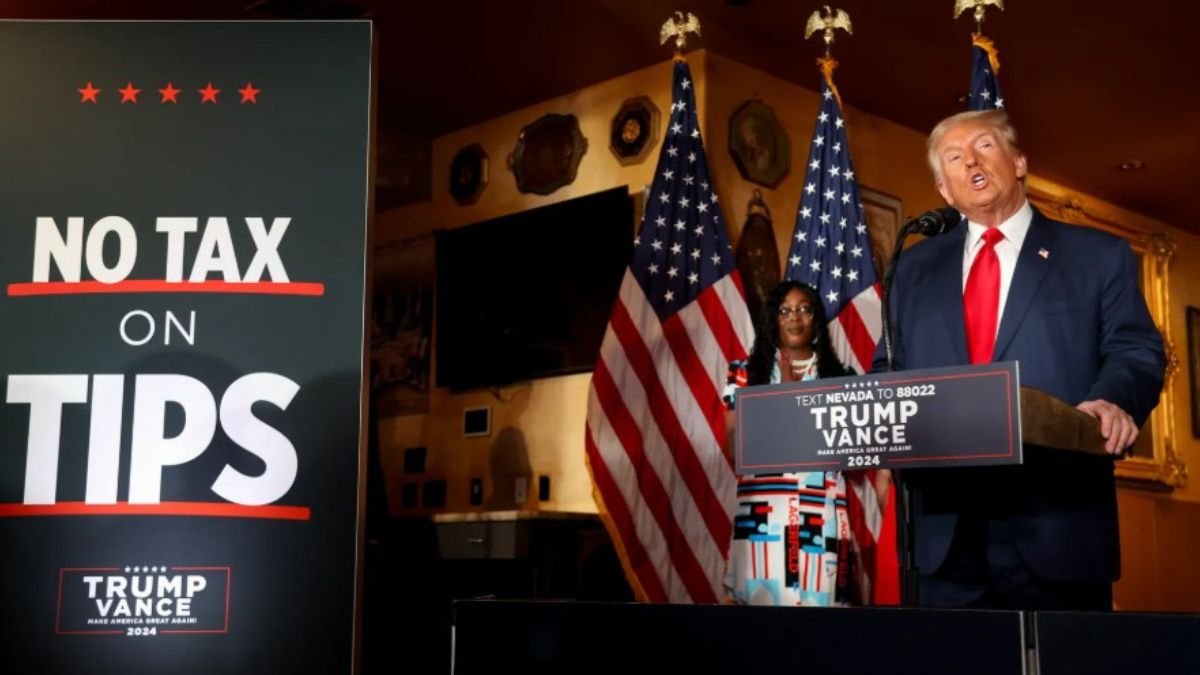In a rare show of unanimous support, the U.S. Senate has passed the No Tax on Tips Act, a bipartisan bill that proposes a major tax break for tipped workers. Championed by Senators Ted Cruz, Jacky Rosen, and Catherine Cortez Masto, the bill passed Tuesday without a single objection and now awaits action in the House of Representatives.
The legislation seeks to allow service workers to deduct up to $25,000 in cash tips reported to employers for payroll tax purposes. However, eligibility is capped for those earning $160,000 or less annually. The measure marks a significant shift in the way the federal government approaches income earned through tipping, with implications for millions of workers in hospitality, food service, and other tip-dependent sectors.
Broad Bipartisan Support

Speaking on the Senate floor, Senator Jacky Rosen praised the measure, stating:
“This bipartisan bill is a good idea. It has support from Democrats and Republicans, so we should pass it, well, as soon as possible, without any poison pills.”
The No Tax on Tips bill was originally introduced in January 2025 by Senator Cruz with a coalition of bipartisan co-sponsors. The Department of the Treasury will be tasked with publishing a definitive list of tip-based occupations within 90 days of the law’s enactment.
The bill gained political momentum during the 2024 presidential campaign. Former President Donald Trump promoted the concept at rallies in Nevada, and Vice President Kamala Harris later endorsed the plan. Their support helped bring the issue into the national spotlight.
What the Bill Proposes
Under the new proposal:
- Workers can claim a deduction of up to $25,000 for reported cash tips.
- The benefit applies only to individuals earning up to $160,000 annually.
- The Treasury must publish an updated list of traditionally tipped occupations.
- The legislation applies only to cash tips disclosed to employers for tax withholding purposes.
The central argument from supporters is simple: workers shouldn’t be taxed twice, once when earning low hourly wages and again on their tips.
Mixed Reactions from Economists and Labor Advocates
Despite political momentum, critics say the bill does little to address systemic wage disparities. Labor economists argue that the No Tax on Tips legislation could incentivize businesses to rely more heavily on tipped compensation, instead of providing wage increases.
According to the Brookings Institution, approximately 37% of tipped workers already pay no federal income tax because their earnings fall below the taxable threshold. Critics argue that efforts would be better spent raising base wages for tipped employees.
Lena Simet, a senior researcher at Human Rights Watch, voiced concerns:
“Without earnings floors like a meaningful minimum wage, workers remain vulnerable to economic exploitation. Tips should supplement not substitute a living wage.”
In August 2024, Simet emphasized that while removing taxes on tips may appear helpful, it distracts from the broader goal of achieving wage equity and stability for low-income workers.
The Economic and Political Stakes
Though the No Tax on Tips bill is aimed at worker relief, its economic scope is limited. Only a small percentage of low-wage workers regularly receive enough in tips to benefit substantially from the new tax deduction. Critics argue this makes the bill more symbolic than transformative.
Still, with growing political pressure to address wage inequities, the bill’s passage signals a shift in legislative priorities. Republicans tout the plan as tax relief for working-class Americans, while Democrats frame it as a measure to protect laborers in industries often overlooked in broader wage debates.
Next Steps: House Vote and Potential Legal Scrutiny
The bill now heads to the House of Representatives, where it may face more scrutiny, especially from progressive lawmakers and labor-rights advocates. While the Senate’s unanimous consent gives it strong momentum, House Democrats have previously voiced concerns about tax-based solutions that don’t directly raise wages.
If passed by the House and signed into law, it will mark a legislative win for both major parties and a strategic move to win favor with working-class voters ahead of the 2026 midterms.
